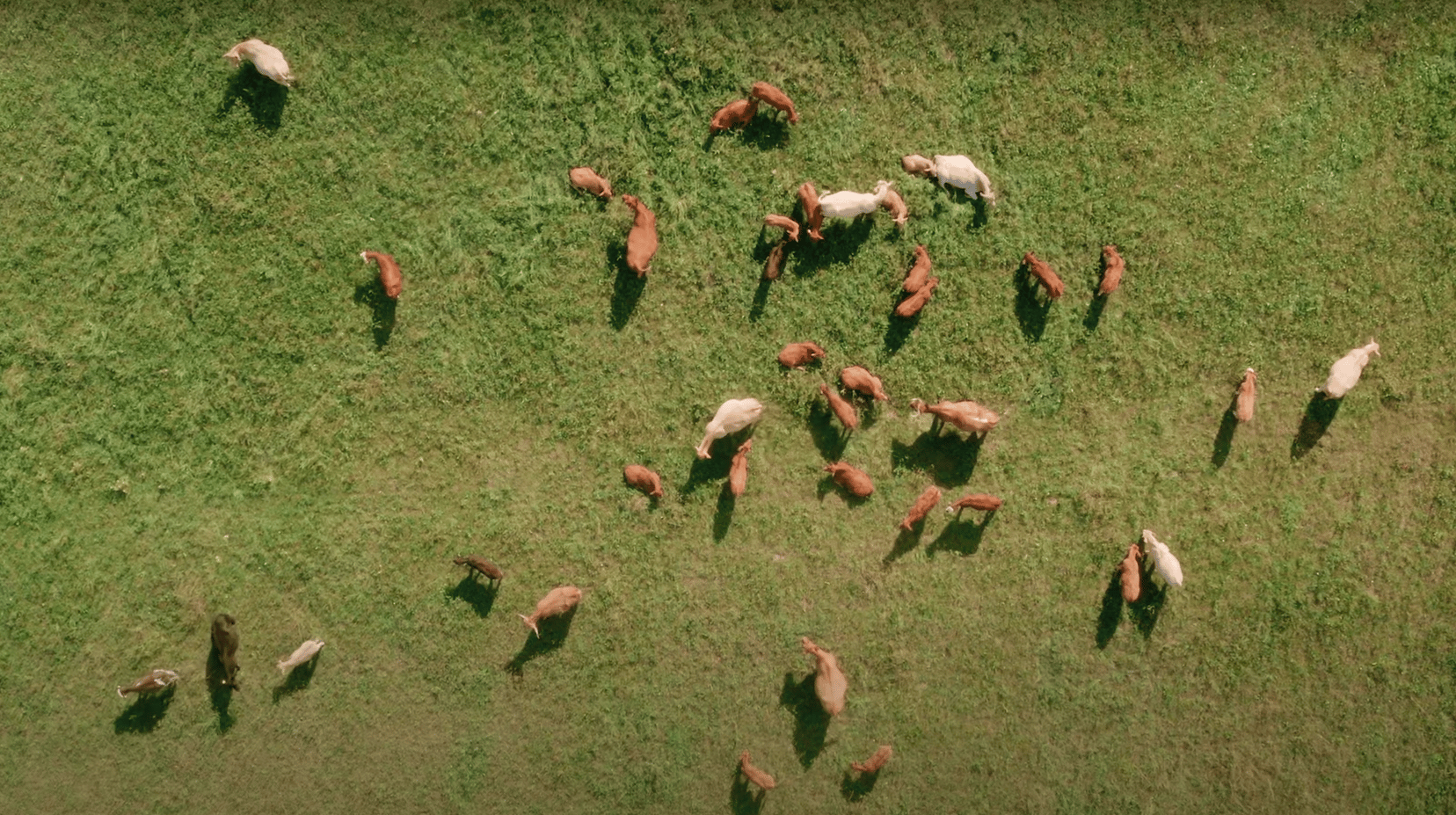Such is the global demand for meat that vast areas of fragile ecosystems like the Amazon and the Cerrado are being cleared to grow soy. A nutritious, protein-rich food source, soy is a ubiquitous food source for chickens, pigs and cows across the world – and while some is consumed by humans, the vast majority is used for animal feed.
The UK imports over three million tonnes of soy every year, from Argentina, Brazil and Paraguay, according to Greenpeace. When land is cleared for soy plantations, huge amounts of C02 are released due to deforestation, and the lands and rights of indigenous communities living harmoniously within the forest are eroded.
Beans, peas, lupins and insects all offer a locally-sourced soy alternative in the UK, as we hear from Devon farmers Amy and Mark Chapple. Many of these crops, especially the legumes, already grow well on UK farms, and there are trials looking at how they can be combined with arable crops like wheat, within one field to help farmers minimise ploughing and maximise yields from one area.
So why aren’t more farmers following suit? Soy is a multimillion-pound global business, and with big grain suppliers providing it in an easy, processed format ready to use on farms, it is often much cheaper than finding and processing their own alternative.
There is also the issue of the nutritional content. Beans and peas are full of protein, but they cannot be digested fully by animals until they are heated. Trials have also found other crops, like wheat or vetch, offer protein to animals if they have begun sprouting.
So how can you buy soy-free?
Soy is widespread, so you can assume most chicken, pork and dairy cows are fed on soy unless otherwise stated.
Online retailer The Ethical Butcher has a small range of soy-free meat, reared by the Chapples who feature in our film.
Numerous other farmers are trialling their own alternatives, but without a soy-free label, you would have to rely on asking and seeking them out. Try your local farmers’ market, butcher or food delivery company – ask where their meat is sourced and what it’s fed.
Spread the word. Soy is the product of an intensive farming system. Buying outside of this system, supporting the local economy and sustainable farmers where you can, will allow them to grow.
Eating less but better quality meat, say once or twice a week, is a good way to prioritise where you spend your money, reduce your environmental impact and support farmers in less intensive farming systems.
Share our film and help friends and family understand the issues around soy and deforestation.
Tell your MP you care. Food systems are complex – tell your MP it’s on your radar and ask them to support sustainable farming wherever they can.








If you eat Pasture For Life grass reared meat, you know it has not been fed soya